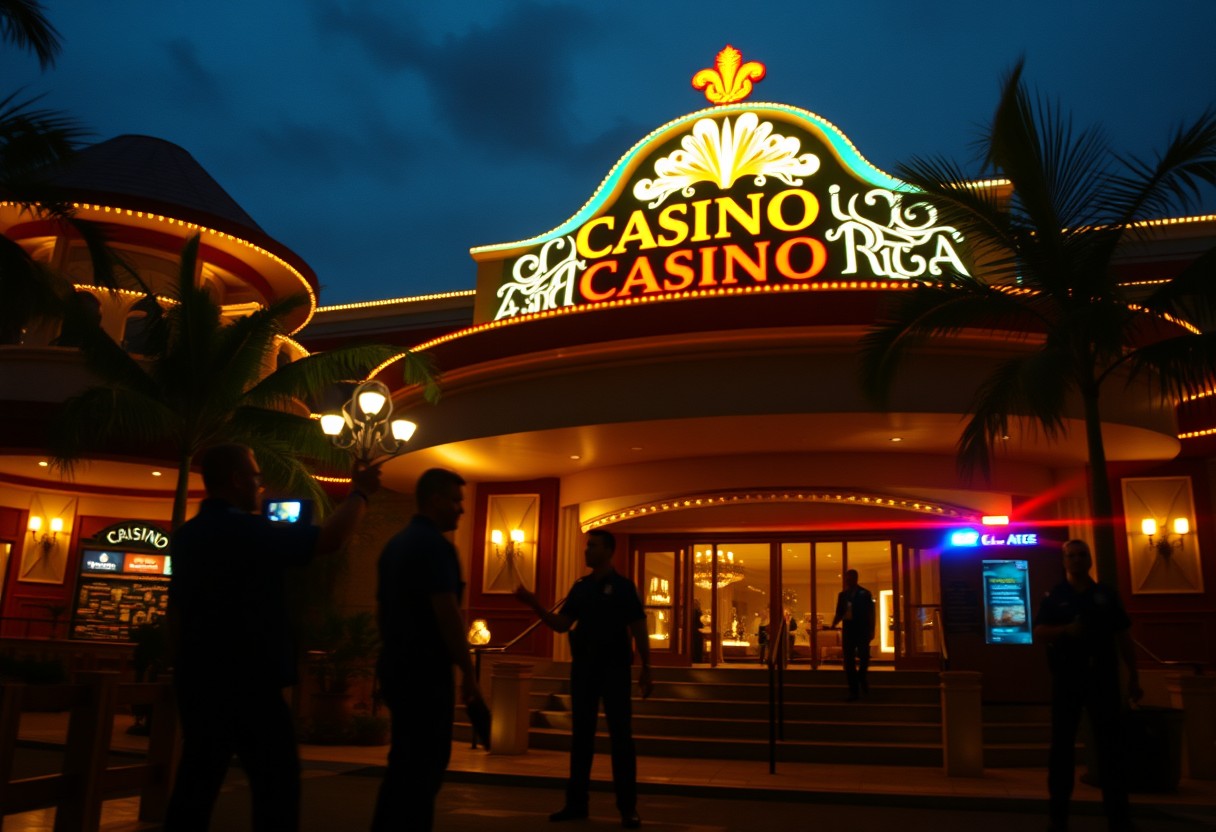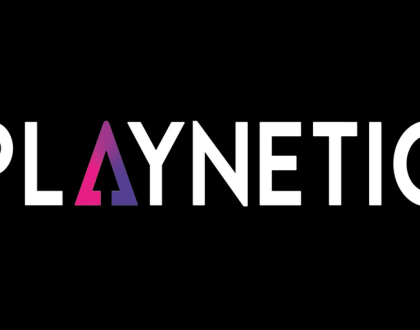Why Costa Rica’s Casino Licenses Are a Front for Crime

You may be surprised to learn that Costa Rica's casino licenses often serve as a veneer for illicit activities, obscuring a murky underbelly of criminal enterprises. This blog post will investigate into the alarming reality behind these licenses, exploring how they can facilitate money laundering and other illegal ventures. By examining the loopholes in local regulations and the implications for both the economy and public safety, you'll gain a clearer understanding of why these establishments warrant your scrutiny.
Overview of Casino Licensing in Costa Rica
Your understanding of casino licensing in Costa Rica reveals a system that operates with minimal oversight, often attracting dubious enterprises. While the country offers licenses for online gambling operations, the lax regulations have raised concerns about the potential for criminal activities. This makes it imperative to examine how these licenses may serve as a cover for illicit operations under the guise of legitimate businesses.
Legal Framework
The legal framework governing casino licensing in Costa Rica is largely based on outdated laws and regulations, allowing companies to obtain licenses without rigorous scrutiny. This has enabled operators to exploit loopholes, creating an environment where accountability is lacking. Consequently, the gambling landscape becomes a breeding ground for potential criminal activities.
Regulatory Challenges
For those looking to understand the complexities of casino regulation, the challenges are numerous. The absence of strict regulatory oversight often leads to a chaotic marketplace where illegal activities can flourish undetected.
Plus, the Costa Rican government has struggled to implement effective measures to combat money laundering and associated crimes that exploit the gambling sector. Limited resources and a lack of political will have made it difficult to uphold stricter enforcement, leaving the system vulnerable. As a result, you may find that the very licenses designed to promote a safe gaming environment often attract unscrupulous operators who seek to exploit these weaknesses for profit.
The Connection Between Casinos and Organized Crime
Little do many realize, casinos often act as a facade for organized crime, providing a cover for illicit activities. From money laundering to drug trafficking, these establishments can easily mask nefarious operations under the guise of legitimate gambling. By understanding this connection, you can gain insight into how seemingly safe and entertaining venues might be anything but.
Money Laundering Operations
Crime syndicates frequently use casinos as laundering fronts, manipulating the betting system to obscure the origins of their funds. Through a series of bets and cash transactions, they can convert illicit earnings into seemingly legitimate profits, allowing them to finance additional criminal enterprises or fund their operations without raising suspicion.
Criminal Networks
Any casino can become a hub for various criminal networks, working hand in hand to facilitate drug trafficking, human smuggling, and other illegal activities. These networks often leverage the anonymity that casinos provide, allowing you to unknowingly participate in a system built on crime and exploitation.
Money is the lifeblood of criminal networks, and casinos serve as a crucial conduit in their operations. By embedding themselves within the gambling sector, these syndicates can easily recruit employees who may turn a blind eye, ensuring a cooperative environment. This infiltration not only enhances their financial pursuits but also perpetuates a cycle of corruption, which ultimately taints the broader societal fabric you reside in. Understanding these connections equips you with the knowledge to recognize the shady dealings that lie beneath the surface of seemingly harmless entertainment.
The Role of Corruption
The prevalence of corruption in Costa Rica significantly undermines the legitimacy of its casino licenses. As operators often bribe officials for permits, the regulatory system becomes a tool for organized crime rather than a safeguard for public interests. This pervasive corruption erodes trust in governmental institutions and allows illicit activities to thrive unchecked, creating a dangerous environment for both locals and tourists.
Political Influence
To maintain their operations, casino owners often exert significant political influence, fostering a climate where corruption can flourish. This relationship often leads to incomplete regulatory oversight, enabling casinos to engage in illicit activities without fear of repercussions. As politicians accept bribes, the cycle of corruption becomes self-perpetuating, further entrenching criminal enterprises in the social fabric.
Law Enforcement Complicity
One critical aspect of the corruption surrounding casino licenses is the complicity of law enforcement agencies. Instead of enforcing the law, some officers may turn a blind eye to illegal activities in exchange for financial incentives from casino operators. This cooperation not only emboldens criminal enterprises but also undermines the public's faith in the justice system.
Enforcement agencies tasked with maintaining the rule of law often find themselves compromised by the very establishments they are meant to regulate. By accepting bribes or engaging in corrupt practices, these officers inadvertently protect criminal interests, allowing organized crime to flourish unchecked. This complicity not only facilitates illegal gambling operations but also creates a broader culture of impunity, where crime becomes an accepted part of the business landscape in Costa Rica.
Impact on Local Communities
Many communities in Costa Rica have felt the adverse effects of the casino industry, particularly in areas where these establishments operate. The influx of gambling facilities often leads to increased crime rates, drug use, and other social issues that negatively impact daily life. This not only affects the residents' safety but also their quality of life as locals grapple with the consequences of heightened criminal activity linked to illicit operations masquerading as legitimate businesses.
Economic Consequences
Consequences of casinos in your community can be far-reaching, as they often divert funding from imperative public services. With a focus on profit, these establishments can diminish local investment in education, healthcare, and infrastructure, which directly impacts the well-being of residents. As more resources become channeled into maintaining a facade of legitimacy for these casinos, your community's economic growth may stagnate or decline.
Social Issues
Economic instability can lead to social issues that plague your community, including increased crime rates and drug abuse. Communities exposed to the negative implications of casino operations often experience a breakdown in family structures and neighborhood cohesion. The environment may foster addiction, as individuals turn to gambling as an escape, further perpetuating cycles of poverty and desperation.
Issues stemming from the casino industry's influence can manifest in various ways, from rising mental health problems to strained community resources. These establishments can contribute to a social climate where addiction and crime become rampant, and you may find local institutions struggling to cope with the demand for help. As gambling becomes more prevalent, local social dynamics shift, often to the detriment of long-term community stability and resilience.
International Response and Implications
Unlike many nations that have stringent regulations on gambling, Costa Rica's loose licensing laws have raised alarms internationally. This lack of oversight has not only attracted criminal enterprises but has also prompted governments worldwide to scrutinize their own regulatory frameworks. The potential for money laundering and organized crime linked to these casinos threatens global financial systems, encouraging countries to reassess their gambling policies and international collaborations to combat such illicit activities.
Global Regulatory Perspectives
Any effective response to the shady practices surrounding Costa Rica's casino licenses involves concerted efforts from global regulatory bodies. By establishing clear guidelines and principles for online gambling and casino management, international agencies can mitigate risk factors associated with crime. Countries with shared interests in maintaining financial integrity may need to come together to create more robust frameworks that protect both their economies and citizens.
Tourist Safety Concerns
Any discussion about casino regulation in Costa Rica highlights significant concerns regarding tourist safety. Many visitors may be unaware of the risks associated with gambling establishments linked to criminal activities. Ensuring that your travel plans consider the safety of your environment can enhance your overall experience in the country.
Safety is a paramount concern when visiting casinos in Costa Rica, as many establishments have been found to be fronts for organized crime. As a tourist, you should be vigilant about the safety measures in place at these locations and consider the potential dangers of engaging in activities within unregulated casinos. Familiarizing yourself with local laws and choosing reputable establishments can help protect your wellbeing and enhance your enjoyment while exploring the vibrant culture of this beautiful country.
Reform Efforts and Possible Solutions
Despite ongoing challenges, there are concerted efforts in Costa Rica to address the issues surrounding casino licenses and associated criminal activity. These reform initiatives aim to enhance regulatory oversight, increase transparency in operations, and ensure that revenues are funneled into community development projects. By implementing stricter guidelines and enhancing law enforcement capabilities, the government seeks to restore public trust and create a safer environment for both locals and tourists.
Legislative Proposals
To tackle the problems caused by illicit casino operations, various legislative proposals are being discussed. These include stricter licensing regulations that require background checks for owners and operators, enhanced reporting requirements for financial transactions, and heavier penalties for illegal activities. By establishing a robust legal framework, it is believed that you can effectively reduce the influence of organized crime in the gaming sector.
Best Practices from Other Regions
Any successful reform in Costa Rica can draw lessons from international best practices in casino regulation. By examining models from jurisdictions with thriving legal gaming industries, you can identify proven strategies for increasing oversight and compliance. These practices often involve robust auditing processes and the promotion of responsible gaming measures. By adapting these strategies, Costa Rica can better protect its citizens and maintain a favorable reputation in the global gaming market.
Efforts in regions such as Nevada and Singapore illustrate the effectiveness of comprehensive regulations and proactive enforcement in combating gaming-related crime. Implementing rigorous licensing processes, continuous monitoring of casino operations, and collaborations between law enforcement and regulatory bodies can significantly mitigate risks. You can advocate for drawing from these successful examples as Costa Rica seeks to modernize its gaming framework, ensuring that casinos contribute positively to society while curbing the potential for criminal activity.
Conclusion
As a reminder, understanding the underlying issues behind Costa Rica's casino licenses is vital for you as a potential investor or visitor. These licenses often serve as a façade for criminal activities, including money laundering and organized crime. You should be aware that the regulatory environment lacks oversight, making it easier for illicit operations to thrive. Therefore, it's crucial for you to conduct thorough research and remain cautious when engaging with establishments that may not be operating within legitimate frameworks.
FAQs
What is the current state of casino licensing in Costa Rica?
Costa Rica’s casino licensing system operates with minimal oversight, often attracting dubious enterprises due to lax regulations and outdated laws.
How do casino licenses in Costa Rica facilitate illegal activities?
Casino licenses can serve as a cover for money laundering and other criminal activities by exploiting regulatory loopholes and the lack of stringent oversight.
What are the regulatory challenges associated with Costa Rican casinos?
The regulatory challenges include limited resources, ineffective enforcement against money laundering, and the lack of rigorous scrutiny in licensing processes.
How does corruption impact casino operations in Costa Rica?
Corruption undermines the legitimacy of casino licenses, as operators may bribe officials for permits and law enforcement may turn a blind eye, allowing illicit activities to thrive.
What international concerns are raised by Costa Rica’s casino licensing practices?
Costa Rica’s lax casino regulations have prompted international scrutiny and concern over potential money laundering and organized crime, leading to calls for stronger global regulatory frameworks.
Recommended Posts

Malta’s AML Measures in Online Gambling
October 4, 2024

Playnetic Gains MGA Approval for Expansion
October 3, 2024

Win Big with BC.GAME’s $BC Mining Rush Event
October 3, 2024



